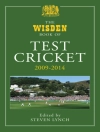Become a part of the growing sports card trading community
Sports Card Collecting & Investing For Dummies will teach you how to start or resume collecting, how to trade, sell, grade, and protect your cards. This is a comprehensive yet easy-to-read breakdown of the sports card hobby and its many nuances. You’ll learn the basics and get up to speed on the recent influx of new brands, companies, investors, influencers, and technologies that have completely reshaped the community. The popularity of sports cards as an alternative investment is at an all-time high, and this Dummies guide helps you budget and make smart trades. The anatomy of a sports card, spotting card damage, grading scales, buying safely, using trusted marketplaces, building your collection, pricing and selling your cards, avoiding scams—it’s all in here. Become a savvy card collector, the easy way.
- Learn the ins and outs of trading sports cards as a collector and an investor
- Determine the value of your cards and discover where to find rare deals
- Stay safe while buying and selling from local dealers, with online marketplaces, and at in-person events
- Become a part of the collector community
Beginners of all ages who want to start (or resume) collecting sports cards can find all the must-know info in the pages of Sports Card Collecting & Investing For Dummies.
Inhoudsopgave
Introduction 1
About This Book 1
How This Book Is Organized 2
Part 1: Getting the Scoop on Sports Cards 2
Part 2: Checking Out the Many Traits of Sports Cards 2
Part 3: The Basics of Buying and Collecting 3
Part 4: Flipping, Investing, and Turning a Profit 3
Part 5: The Part of Tens 3
Glossary 3
Foolish Assumptions 4
Conventions Used in This Book 4
Icons Used in This Book 4
Beyond the Book 5
Where to Go from Here 5
Part 1: Getting the Scoop on Sports Cards 7
Chapter 1: Sizing Up the Sports Card Craze 9
The Psychology of Collecting 10
Why we collect sports cards 10
A new (not really) kind of investment 12
Getting Lost in the Cardboard (It’s a Good Thing.) 13
Rediscovering your old collection 13
Tips for finding cards you will (or won’t) love 16
Chapter 2: The Evolution of Sports Cards through the Decades 19
Where It All Began 20
Exploring the 1800s and the first cards 20
Pre-War and Vintage 22
Colors, stats, and a sweet new hobby 23
American Caramel and Cracker Jack 23
1933 Goudey Big League Gum 24
The early Bowman, Leaf, Fleer, and Donruss entries 25
1952 Topps and the modern sports card 27
O-Pee-Chee and Panini make their debuts 28
The Modern Era 30
The sets that defined the era 30
Great music, junk wax 33
A near-death experience 34
The great rebound 35
We won’t get fooled again 36
The Ultra-Modern Era 36
More than a sandwich 37
The big boom 38
Record-high market 38
Death by parallel and the Junk Slab Era 39
Violence, theft, and the retail controversy 41
Where the hobby goes from here 41
Part 2: Checking Out the Many Traits of Sports Cards 43
Chapter 3: The Anatomy of a Sports Card 45
What Makes a Sports Card? 45
Major card designs through the years 46
Making a first impression 51
What’s on the back? 54
Art cards and custom cards 54
Exploring the Printing Process and Product Configuration 55
The materials that make sports cards 55
Set size, hits, chases, and what makes a product 56
Understanding the Packout Process and Distribution 58
From the printing press to sealed packs and boxes 58
The journey from manufacturer to storefronts 60
Chapter 4: Understanding Product Checklists: Base Cards, Parallels, Inserts, and More 63
Learning How to Read (the Checklist) 64
Checklists 65
Product information sheets 67
Spotting a Base Card and the Rainbow of Parallels 68
Identifying base cards 68
Spotting the many variations 69
Inserts and Design Madness 74
What makes an insert 74
Embracing the design madness 75
Chasing Autographs and (Maybe) Game-Used Memorabilia 78
Understanding authenticity 79
Signed, sealed, and delivered 80
Getting closer to the game (or your local retailer) 82
Chapter 5: Different Sports and Their Nuances 89
Basketball cards 90
Built on superstars and flash 90
Iconic basketball players 91
The transition to Panini 93
WNBA rises in popularity 94
Baseball cards 96
The richest history 96
Iconic baseball players 97
Football cards 100
Quarterback or bust 100
Iconic football players 102
Hockey cards 103
A small but passionate fan base 103
Iconic hockey players 105
Other notable sports 105
Soccer 106
Boxing and MMA 108
Golf and tennis 108
Racing 109
Chapter 6: Key Manufacturers, Brands, and Products 111
Licenses make all the difference 111
Unlicensed cards 112
Key basketball card sets 113
Key baseball card sets 115
Prospecting and Minor League cards 118
Key football card sets 119
Hockey cards 120
Other notable sports and key sets 123
Key soccer card sets 123
Key boxing and MMA card sets 124
Key golf and tennis sets 125
Key racing card sets 125
Chapter 7: The Importance of Card Condition — From Printing to Grading 127
Physical Aspects of Cards 128
Surface condition, centering, corners, and edges 128
Spotting print defects, damage, and other issues 134
Cleaning or altering? 136
Card Grading 138
Benefits of grading, from authentication to market value 139
Trusted grading companies 140
Grading scales and numerical values 144
The grading process 145
Part 3: the Basics of Buying and Collecting 149
Chapter 8: Deciding What Kind of Collector You Will Be 151
Setting Your Collecting Goals 151
Setting realistic expectations 152
Quality versus quantity 153
Tips for staying on track 153
Picking Your Personal Collection Themes 155
What kind of collector are you? 155
Chapter 9: Buying Basics and Building Your Collection 159
Buyer’s Market 160
Sealed products 160
Box breaks 161
Singles 162
Lots 162
Online Marketplaces and Retailers 163
e Bay 163
COMC 164
My Slabs 164
Alt 165
Blowout Cards 165
Dave and Adam’s Card World 165
Others worth considering 165
Take It to the (Auction) House 166
Goldin Auctions 166
PWCC 166
Heritage Auctions 167
Others worth considering 167
It’s Always Personal 167
Local card shops 167
Card shows 168
Trade nights 168
Let’s get social 168
Great Deals (Aren’t) Hard to Find 169
An honest mistake 169
The great negotiator 170
R-E-S-P-E-C-T 171
Displaying and Storing Your Collection 171
Penny sleeves, Toploaders, and other holders 172
Fit for a museum 174
Chapter 10: Navigating a Card Show Like a Pro 177
Don’t Forget the Essentials 177
Straight cash, Homie 178
These shoes are made for walking 178
Baggage claim 178
Navigating the Chaos and Making a Deal 179
Needle in a haystack 179
Deal or no deal 180
Card Show Etiquette 182
Table manners 182
Thank you for being a friend 183
Plenty of fish in the sea 183
Chapter 11: Finding or Building a Community 185
Using Social Media to Find Your Community 186
Best platforms to get started 186
How to safely communicate online 187
Starting a community when you can’t find one 189
Networking at Events to Grow Your Community 189
Event etiquette 190
Why all events aren’t created equal 190
Chapter 12: Resources to Grow Your Hobby Knowledge 191
Free Industry Resources 191
Set and product details 192
Authentication, grading, and auctions 193
Community Content and Other Media 194
Pricing data tools 194
Picking the right creators 194
Magazines and more 195
Chapter 13: The Dark Side of the Hobby 199
Too Good to Be True 199
Spotting fake cards 200
Avoiding scams 202
Shill bidding 203
Online etiquette 204
Drama queens 204
Pumping and dumping 205
Personal Responsibility and Managing Your Budget 205
What is and isn’t out of your control 206
Setting a budget and staying on target 207
Part 4: Flipping, Investing, and Turning A Profit 209
Chapter 14: Investing in Cards While Attempting to Turn a Profit 211
The Basics of Sports Card Investing 212
Some important disclaimers 213
Key concepts to follow 215
How, when, and where to sell your cards 222
Fatal mistakes to avoid 225
Building Your Business from Scratch 226
Making your first deals 227
Building on a budget 227
When to take a loss 227
Creating realistic expectations 228
Chapter 15: Three Ways to Profit 229
The Quick Flip 229
Spotting flipping candidates 230
Targeting the right timeline 232
Using data to make the right moves 232
Other tools to help 233
Short-Term Speculation 234
Expectations and timeline 234
Grading or selling raw 235
Buying and selling seasons 236
Long-Term Investments 237
What makes a great long-term hold 237
Why vintage has been considered a good investment 240
Chapter 16: Properly Valuing and Selling Your Cards 243
Sales Data Matters, but There’s More to the Story 243
Trusted pricing tools 245
Important price points, trends, and more 247
Becoming a High-Quality Seller 251
A personal touch 251
Maintaining a good standing selling online 253
Handle with care 254
Part 5: the Part of Tens 257
Chapter 17: Ten Unwritten Rules Every Collector Should Follow 259
Have Fun and Collect What You Love 259
Don’t Let FOMO Drive Your Decisions 260
Set a Budget and Stick to It 260
Respect How Others Collect 261
Be Reasonable When Trading 261
Ship Cards Like You’d Want Them to Be Shipped 261
Understand the Cost of Doing Business 262
Support Your Local Card Shop 262
Look to Pay It Forward 262
Never Stop Learning 263
Chapter 18: Ten Tricks to Building a Great Collection 265
Find a Collecting Theme, Identity, or Style 265
Set Realistic Goals, but Dare to Dream Big 266
Be Patient and Play the Long Game 266
Use Data and Other Resources to Find Great Deals 267
Curate Your Collection Periodically 267
Consolidation Can Help Win Holy Grails, but It Isn’t for Everyone 268
Go Off the Beaten Path and Search for Hidden Gems 268
Develop a System to Store and Display Your Cards 269
Find Hobby Friends and Collecting Groups 269
Learn from Your Mistakes 270
Chapter 19: Ten Iconic Cards Every Collector Should Know 271
1909–1911 T206 Honus Wagner 271
1933 Goudey Babe Ruth 273
1948 Leaf Jackie Robinson 274
1952 Topps Mickey Mantle 274
1979 O-Pee-Chee Wayne Gretzky 276
1980 Topps Bird/Erving/Johnson 277
1986 Fleer Michael Jordan 277
1989 Upper Deck Ken Griffey Jr 279
2000 Playoff Contenders Rookie Ticket Autograph Tom Brady 280
2003 Exquisite Collection Le Bron James 281
Glossary 283
Index 291
Over de auteur
Geoff Wilson is the founder of Sports Card Investor, the leading content network and data platform for trading card enthusiasts. Ben Burrows is a journalist and the former content director for Sports Card Investor. Tyler Nethercott is the VP of product development for Sports Card Investor.












